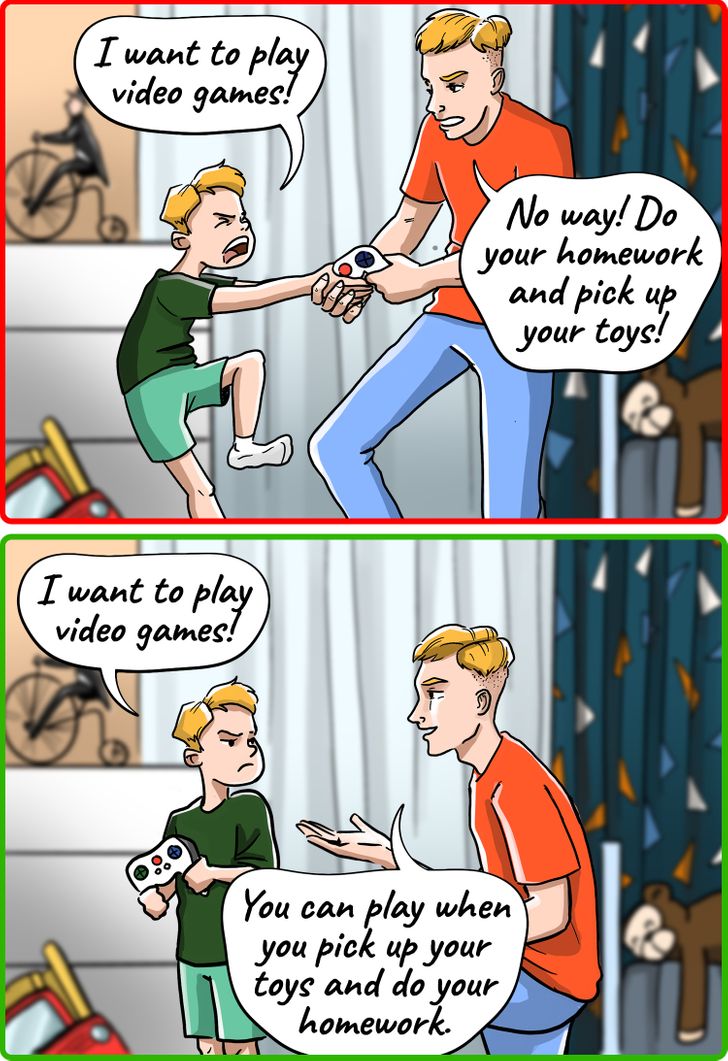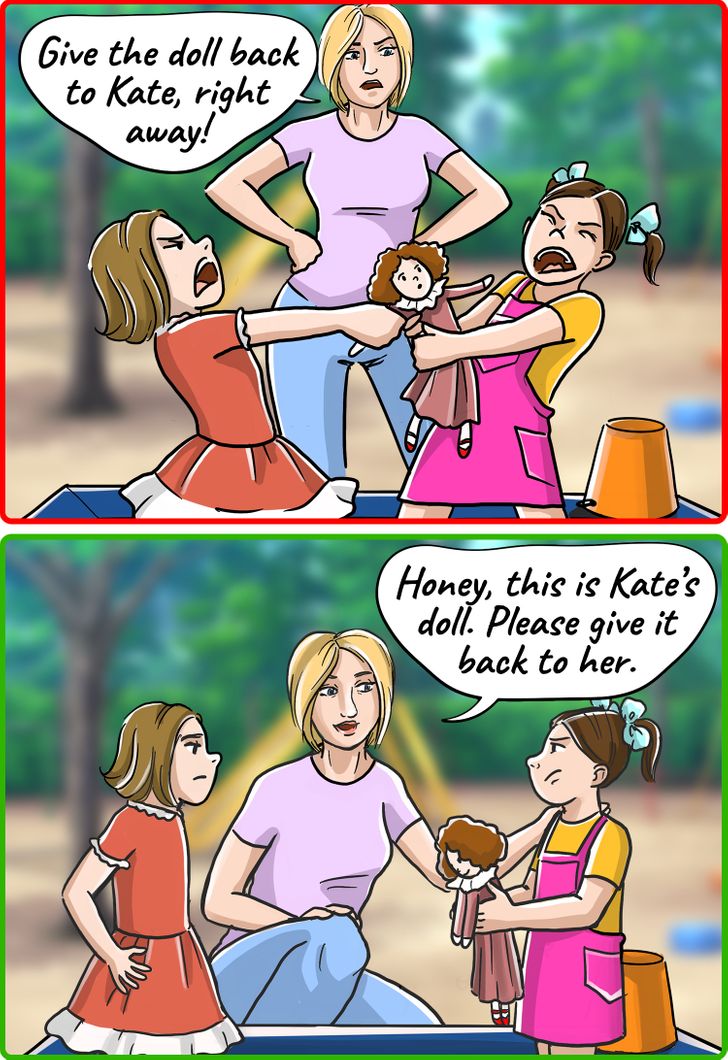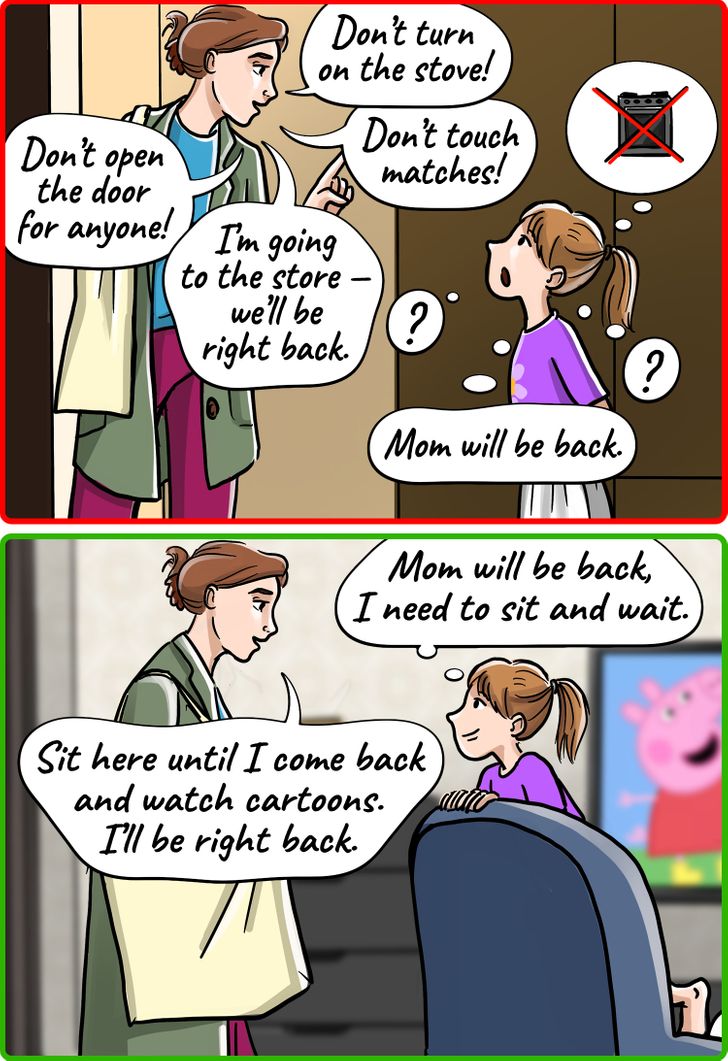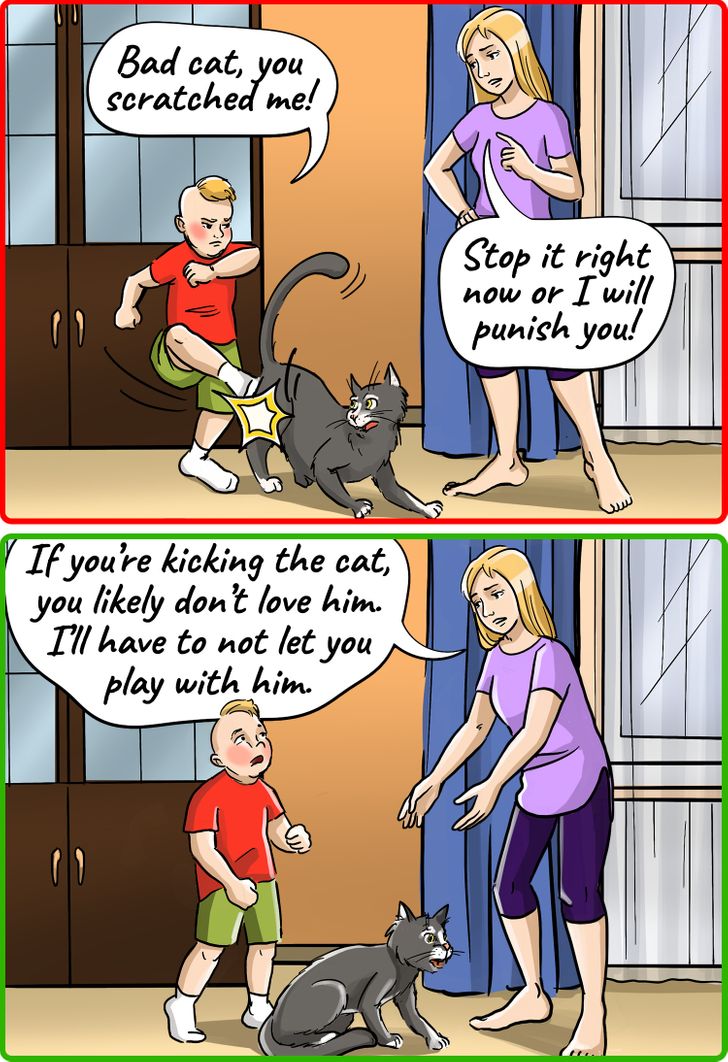16 Photos That Made Us Stop Believing Our Own Eyes

Parents know how challenging it can be to get their child to do what’s needed, especially when it comes to teenagers who seem to tune out their parents. In reality, there’s an approach that can work for each child, the key is to be aware of a few psychological tricks. As a bonus, you’ll learn how to react when your child finally does what you asked for.

if you find yourself repeating the same things because your child simply isn’t paying attention, it can become frustrating for both of you. It might lead to unwarranted stress and confusion. Repeated nagging can be counterproductive as well, as it doesn’t attach any consequences to the behavior. Essentially, by repeating requests without consequences, you inadvertently teach your children to continue the undesired actions.

Try to use more “when-then” statements when talking to your kids. It will help children realize that they can control the situation and that it’s your child who is in control of when a positive outcome occurs. Also use these statements when you want to get some actions from your kid: “When you finish watching cartoons, please wash the dishes.”

If your kids keep ignoring you, perhaps you raise your voice too often when talking to them or simply nag a lot. You’d better not do the latter for the following reasons:
Instead of resenting the hundredth time dirty dishes are left on the table, try praising the kid for their correct actions. If you demand something from your kid, come up with clear instructions and warn them about the consequences only once.

Instead of repeating safety rules to your kids a thousand times, like that they aren’t listening attentively, make their memories go to work. Ask them a question about what they should do in a certain situation or how they see a certain issue. It will help them remember the rules better and you won’t look like a parrot when reminding them about a piece of useful advice.

Kids that get carried away with a game or a fight will not even notice that you’re addressing them, thus ignoring your words or even screams. To get your child to listen to you and help them focus on what you are saying, squat down or bend over to them and put your hand gently on their shoulder. It will help increase the chances that you will be heard.

Though it seems to us that screaming gets quick results, kids tend to get used to screaming parents and stop reacting to them. That’s why if your kids are shouting in a room and playing wildly, try to whisper to them. This method works especially well with small kids, and it also has a good effect on teenagers and adults.
It turns out that understanding a whisper requires more mental effort, and this makes a person feel distracted from other things, allowing them to listen more attentively to the words of the interlocutor. In addition, we instinctively feel that important phrases that are said in a whisper can affect our well-being. For children, a quiet voice often has a calming effect, so you can switch to whispering to simply reduce the child’s anxiety.

The brains of kids under 7 years old can store no more than 1 to 2 pieces of information, and older children and adults can store up to 3 to 5 pieces. That’s why it’s senseless trying to get your kid’s attention with the help of several sentences at once — it’s better to frame all the important things that you want to say in 1 or 2 short phrases. Safety rules are better conveyed gradually as not to stuff a child’s brain with a bunch of advice and instructions.

It’s important that the kid understands how their actions affect people and animals surrounding them. You don’t need to instill a feeling of guilt in them, you only need to explain that their actions can give someone pain, grief, and resentment. It will help your child learn to empathize with others faster. Tell your kid how you feel from their words or what their behavior says to you. For example, “Your whining tells me you’re tired and it’s time we left the playground.”

A parent who yells at their kid for picking their nose or for throwing a tantrum in public is likely having issues not with the kid but with the way they themselves are perceived. They feel ashamed that someone might think that he or she is a bad parent. To learn to accept your offspring with all their imperfections (which is the base of trust), the parent should, first of all, accept themselves.
Even if right now the behavior of your kid is far from perfect, you shouldn’t doubt that they will grow into a decent person. Love them with all their imperfections. The kids will listen to your opinion only if they consistently feel your support.

You may say, “Thank you for listening to me and doing what I asked. You did a great job”. We can get frustrated when a child doesn’t listen for a long time and take their good behavior for granted. But it’s much more beneficial to thank the child and acknowledge their efforts. This way, you motivate them to continue listening to you in the future.
If you have children, this article was probably useful for you. Don’t forget to read another one to find out which phrases should never be said to children.











